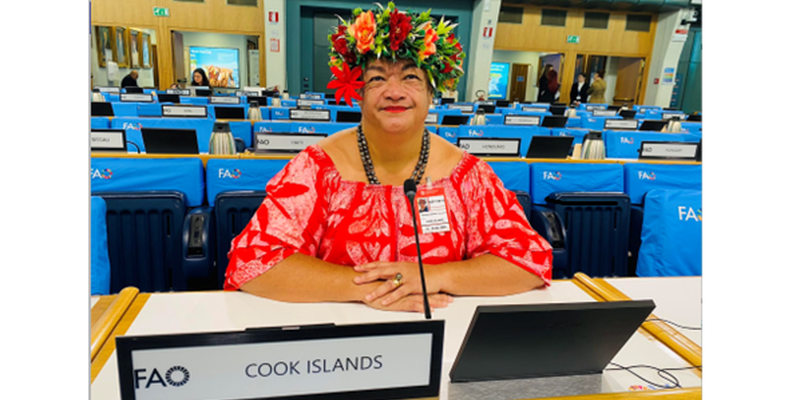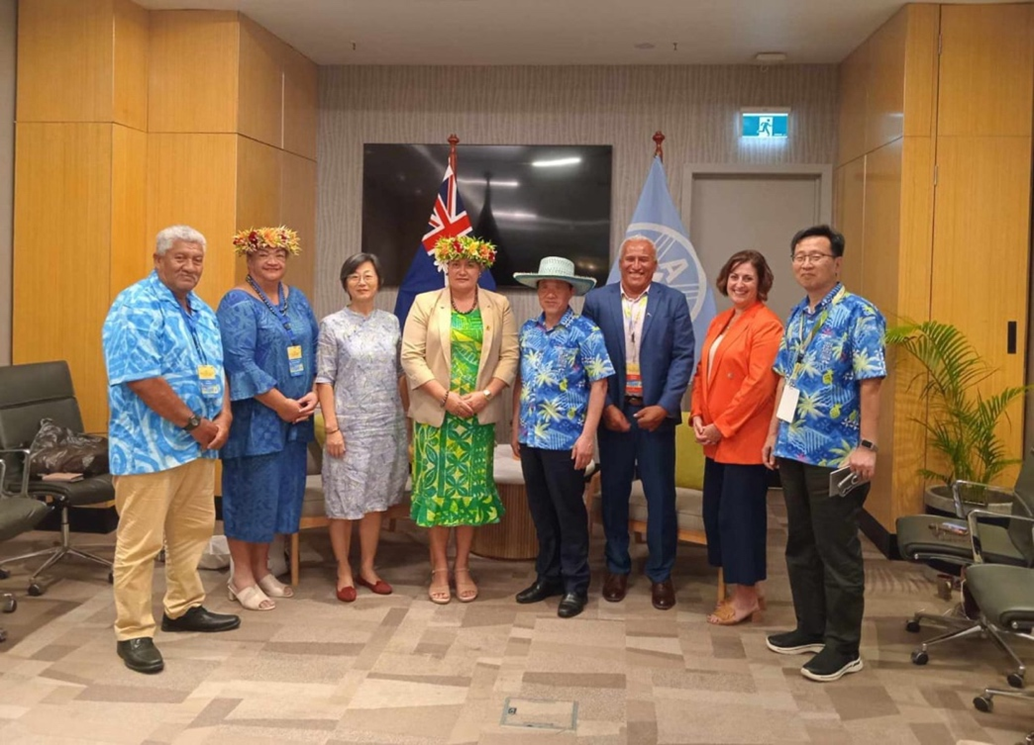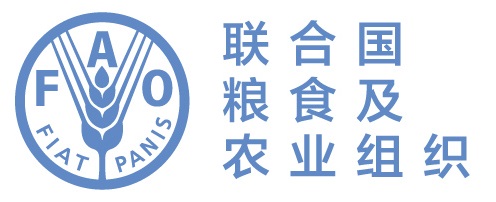焦点:植检委主席团西南太平洋地区新任代表Temarama Anguna-Kamana——“同一健康”与能力建设的倡导者
Posted on Fri, 13 Dec 2024, 12:20

Temarama Anguna-Kamana出席CPM-18 ©粮农组织
我们本月采访的焦点人物是库克群岛农业部部长Temarama Anguna-Kamana,她即将担任植检委主席团西南太平洋地区代表。
欢迎您,Temarama!能否先介绍一下您自己、您的职业生涯,以及您取得的一些具有里程碑意义的成就?
感谢邀请我参加这次采访!我叫Temarama Anguna-Kamana,自2018年10月起担任库克群岛农业部部长。我是首位担任此职位的女性,并为其带来了人力资源和企业管理的专业背景,我为此感到自豪。部里的人通常拥有科学和农业专业背景。
在此之前,我曾在卫生部担任人力资源主管12年。当我加入农业部时,我优先考虑珍视我们的人才和资源。我们升级了设施,为员工配备了更好的工具,营造了更具赋权性的工作环境。这些努力得到了认可,过去六年中,农业部连续获得公共部门绩效卓越奖。
您拥有商业和人力资源背景,是什么驱使您加入国际植物保护公约(下称“IPPC”)这样一个高度技术性的团队?
我与IPPC的缘分始于2019年,当时我和我的上级一起参加了植检委第十四届会议。这是我第一次接触这一全球性组织,我发现其所做的工作非常有吸引力。2022年,我参加了在伦敦召开的国际植物健康大会,这让我进一步认识到我们地区亟需做的工作,以及与国际植物检疫措施标准(下称“ISPM标准”)和IPPC社区更广泛目标保持一致的重要性。我意识到,我们国家和地区需要加大努力,才能最大限度地从与IPPC的合作中获益。
您在植检委第十八届会议上被提名为植检委主席团成员,代表西南太平洋地区,并将从2025年开始履职。是什么使得您愿意担任这一职务?
我觉得太平洋地区是时候发出更强有力的声音了。我相信,若能有来自太平洋的人在主席团成员之列,就能确保我们的独特挑战和观点被听到。例如,我们面临着地理孤立、资源有限和气候变化等特定问题,这些问题并不能通过“一刀切”的方法解决。此外,粮农组织总干事已表达了加强与太平洋关系的意愿,我认为这是一个既能为此目标做出贡献、又能为我们地区发声的机会。
粮农组织总干事屈冬玉刚于今年11月访问了斐济,并主持了2024年小岛屿发展中国家发展对策论坛。您能谈谈这次会议,以及它如何与您在植物健康方面的倡议相关?
在斐济会议期间,我和我的上级与粮农组织总干事和副总干事举行了双边会谈。这是一次重要机会,让我们能够强调本地区的需求和优先事项。我提出的其中一点是,太平洋地区应在粮农组织理事会中拥有席位,以确保在更高层面上能够代表并反映我们地区的独特挑战。我还主张应增加粮农组织针对IPPC的支持资源,因为其工作对全球粮食安全和植物健康至关重要。最后,我提出应将植物健康从环境健康中分离出来,强调尽管环境倡议同样重要,但植物健康值得单拎出来予以关注。

库克群岛代表团和粮农组织代表团在2024年小岛屿发展中国家发展对策论坛期间合影 ©粮农组织
确实,您提的最后一点与“同一健康”紧密相连,而“同一健康”正是植物健康未来发展的关键优先事项。您如何看待植物健康在“同一健康”中的角色?
植物健康直接影响对人类生存至关重要的粮食安全、土壤健康和膳食营养,但其关注度往往不及环境健康和动物健康。植物是粮食安全的基础,并有助于人类健康和动物健康。我长期以来一直倡导将植物健康从环境健康中分离出来,并将其视为独立的优先事项,因为环境健康主要关注森林和湿地,而这些并不直接涉及我们所食用的粮食。如此区分能让植物健康得到应有的重视,确保其不会在分配资源和确定优先事项时被忽视。没有健康的植物和土壤,就没法种植粮食。
我认为,“同一健康”是我希望在区域和全球层面上倡导的关键优先事项。在太平洋地区,我参与了多个以“同一健康”为重心的工作组。我在太平洋及动物卫生及畜牧生产事务负责人组织(PHOVAPS)担任主席一职,同时也是太平洋农业及林业事物负责人组织的成员。2024年,我还参加了一次环境会议,制定《将生物多样性主流化纳入农业各部门(包括农业、畜牧业、林业、渔业和水产养殖业)太平洋行动计划(2024-2030)》,该计划的战略优先领域和目标需要与“同一健康”更加紧密地联系在一起。在全球层面,植检委近期成立了“同一健康”背景下植物健康问题焦点小组,我乐见其成。为进一步推动“同一健康”,我也积极申请成为该焦点小组的专家,因为我认为其工作与我们在太平洋地区植物健康方面面临的挑战直接相关。
太平洋地区在植物健康方面主要有哪些挑战、关注的领域有哪些?
我们主要的挑战之一是新发有害生物的威胁。草地贪夜蛾(Spodoptera frugiperda)和椰蛀犀金龟(Oryctes rhinoceros)是我们最担心的有害生物,因为它们可能严重危及粮食作物生长。幸运的是,我们近期并未遭遇重大虫害入侵,只经历了一次果蝇暴发,不过已成功根除。我国作为一个小岛屿国家资源有限。我们每周都会针对非洲大蜗牛等入侵物种进行有害生物监测。我们还努力开展公众宣传,鼓励岛上游客和进口商遵守适当的程序,以避免引入潜在的植物有害生物。
我们还在探索是否能开展有害生物入侵模拟演练。如能开展,将大有裨益。演练如能以在线形式进行,会比较实际,也更省资源,我们正在考虑这一方案,不过我们也明白,现实中的情况极为复杂,必须要在模拟演练中再现这种复杂性。我认为,应对新发有害生物的一大关键是区域合作——跨国分享经验和策略,对所有参与方来说都意味着双赢。
IPPC如何支持库克群岛和贵地区应对这些挑战?
我们在西南太平洋地区面临的主要挑战之一是能力建设。作为小岛屿国家,我们没有资源自行开发培训材料,这就是为什么[]IPPC指南、培训材料和其他资源]1对提升员工技能和增强准备能力至关重要。在库克群岛,我们已明确将能力建设列为优先事项,因此我们非常欢迎最近新增的IPPC在线学习课程,这些课程对我们已在使用的IPPC指南作了很好的补充。我们正在探索更多方式,将这些材料整合到我们的国家培训项目中,并根据小岛屿国家的独特国情定制我们自己的能力建设方法。我们对所有正在开发的新资源抱有期待,要在整个地区层面推广其使用,有我来为IPPC秘书处提供支持!
您想对国际社会传达什么信息?
虽然库克群岛很小,但我们面临的挑战与大国相同——土地稀缺、劳动力老化,且亟需保障粮食安全。即便挑战重大,我们也尽力而为,极力追求韧性和可持续性。我们希望世界知道,我们有能力并愿意为全球努力做出贡献。与此同时,我们也希望外界能够支持与合作,帮助我们克服独特的挑战。植物健康是粮食安全不可或缺的一部分,它应当在全球议程中享有同等优先地位。
我希望国际社会能够认识到植物健康、粮食安全和环境可持续性之间的紧密联系。没有农民,就没有粮食——就是这么简单。

